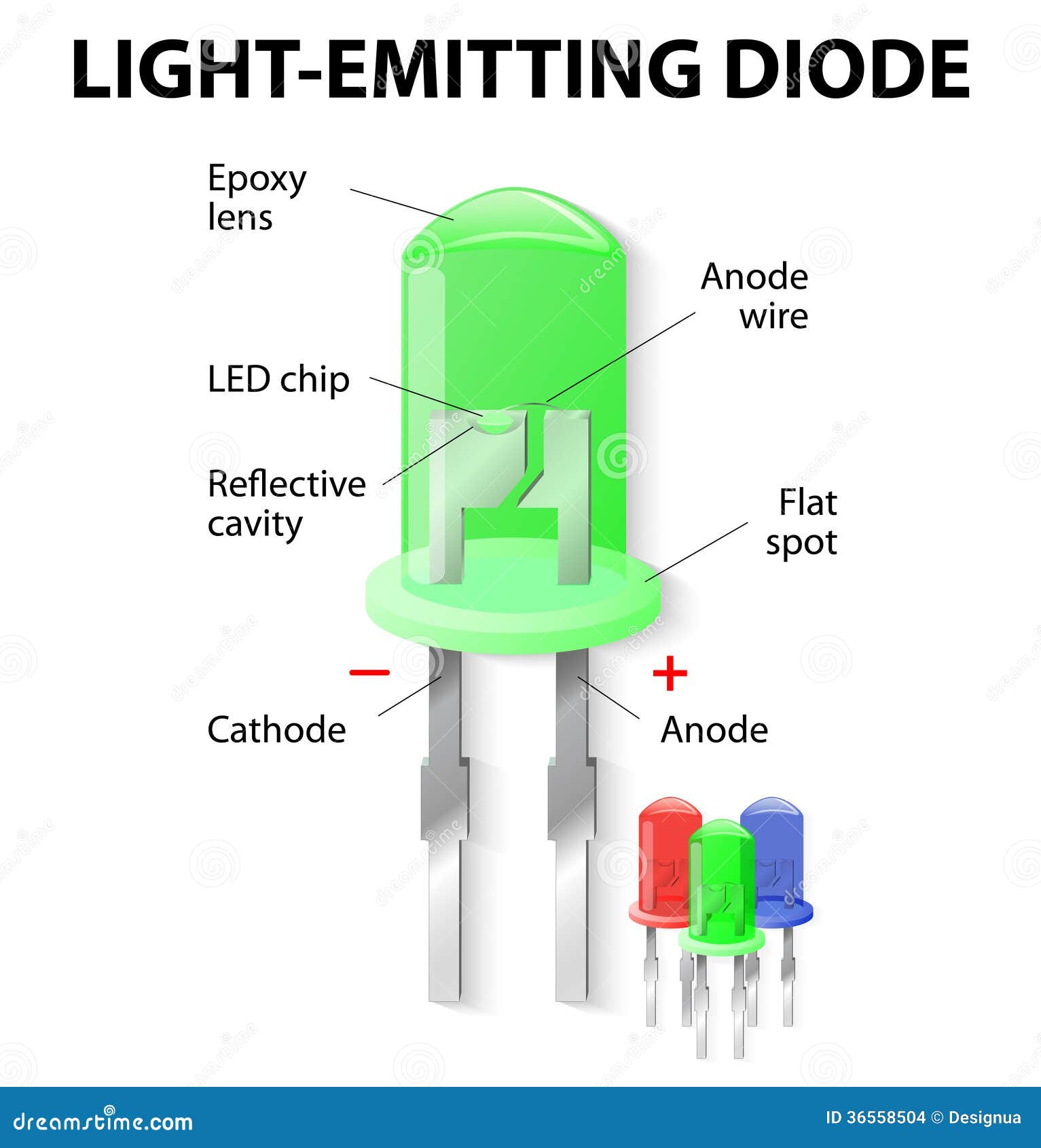5.1. Heat.
The energy that an electric current produces as heat is called the Joule Effect. It is expressed by the following formula:
E = I² x R x t
5.2. Light.
There are various ways that electricity can be used to produce light.
-Incandescent bulbs.
When an electric current passes through the metallic filament of a light bulb, it produces light.
-Fluorescent tubes.
There is a metallic filament, normally made og tungsten. There is also an inert gas, such as argon and a small amount of mercury. When an electric current passes through the filament, electrons are emitted into the inert gas. These react with the mercury, creating invisible, ultraviolet light. Fluorescent tubes contain a number of toxic substances, such as phosphor and mercury.
-Light-emitting diodes (LED).
LED has layers of semiconductor materials. The n-type layer has extra electronns with negatively charged particles. In contrast, the p-type layer has holes where there aren't enough electrons. When electricity is applied to the LED, the electrons and holes cross over into the active layer, where they combine and produce photons, or particles of light.

5.3. Electromagnetic effects.
The scientist Michael Faraday discovered the opposite effect. He noticed that electricity could be generated by using a magnet and an electrical conductor. This principle allows us to build dynamos and alternators.
5.4 Sound.
We can transform elctric current into sound by using electromechanical devices, such as bells and buzzers. Some of these devices are based on the piezoelectric effect, or the ability of some materials to changue shape when electricity is applied to them.
No hay comentarios:
Publicar un comentario